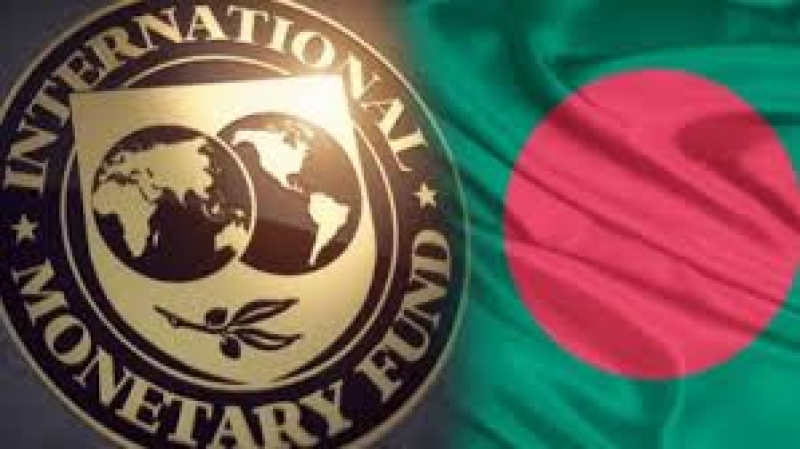- Israel Strikes Tehran with US Support Amid Nuclear Tensions |
- India Sees 9% Drop in Foreign Tourists as Bangladesh Visits Plunge |
- Dhaka Urges Restraint in Pakistan-Afghan War |
- Guterres Urges Action on Safe Migration Pact |
- OpenAI Raises $110B in Amazon-Led Funding |
IMF Hints at Approving $2.39B Loan for Bangladesh

The International Monetary Fund (IMF) is poised to approve the fourth and fifth tranches of its $4.7 billion loan to Bangladesh, with a decision likely to come during the IMF-World Bank Spring Meetings in Washington this April.
In a statement issued Thursday, the IMF confirmed that discussions are ongoing to finalize a staff-level agreement, expressing continued support for Bangladesh amid mounting economic challenges.
"Discussions are continuing with the objective of reaching a staff-level agreement in the near term. We reaffirm our commitment to support Bangladesh and its people at this challenging period," the statement read.
An IMF mission, led by Chris Papageorgiou, concluded a two-week visit to Dhaka on April 17. During the visit, which began on April 6, the delegation reviewed the country’s economic and financial policies and held meetings with key institutions, including the Finance Division, Bangladesh Bank, National Board of Revenue (NBR), Power Division, Power Development Board, Bangladesh Energy Regulatory Commission (BERC), and the Energy and Mineral Resources Division.
Since the loan programme was initiated on January 30, 2023, Bangladesh has received three disbursements: $476.3 million in February 2023, $681 million in December 2023, and $1.15 billion in June 2024—totaling approximately $2.31 billion. The remaining two tranches, amounting to $2.39 billion, are still pending.
The IMF mission noted that Bangladesh’s economy continues to face significant pressure, with GDP growth slowing to 3.3% year-on-year in the first half of FY25—down from 5.1% during the same period last year. The slowdown has been attributed to recent political unrest, tight monetary policies, and declining investor confidence.
Inflation, which reached a decade-high of 11.7% in July 2024, moderated to 9.4% by March 2025 but remains well above the central bank’s 5–6% target range.
To stabilise the economy, the IMF recommended a combination of fiscal consolidation, greater exchange rate flexibility, improved tax compliance, and institutional reforms. It also emphasized the need for stronger governance, increased climate resilience, and structural reforms to boost investment and diversify exports.

